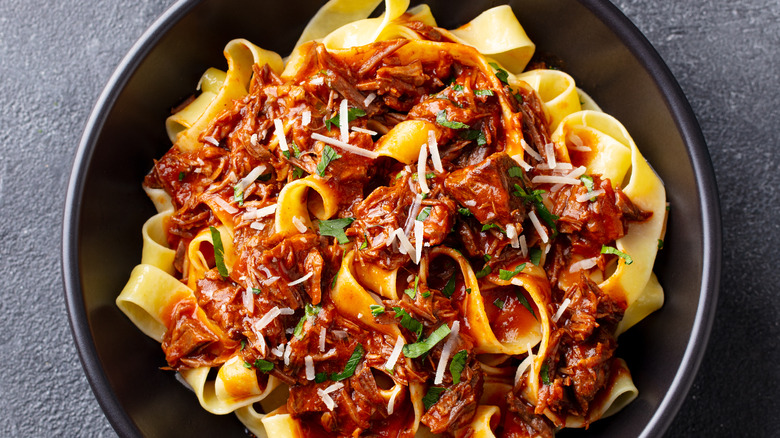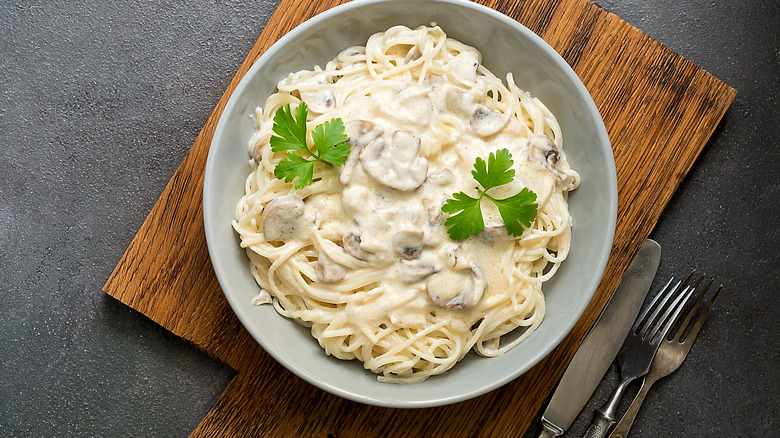Why You Should Add Extra Sauce Before Refrigerating Pasta
Pasta is a dish that can feed a crowd, and when cooking a pound — or more — you're bound to have some leftovers. This shouldn't pose a problem, since most pasta dishes are easy to reheat either in the microwave, on the stovetop, or in the oven, per Food Hero. Leftovers are great, but only when texture or taste of the original dish isn't sacrificed. Sometimes pasta dishes can fall into this category and get tossed out or go to waste.
According to The Atlantic, food waste topped 35 million tons in 2012. Even though saving pasta leftovers can be a delicate dance of making sure the dish isn't too dry or too mushy because of excess sauce, you can prevent food waste with just a little effort. Of course you can store pasta and the sauce separately, as noted by Fork Bite, but this only works with certain dishes, like spaghetti and meatballs.
Toss with olive oil
Recipes like fettuccine alfredo or macaroni and cheese, served with the pasta and sauce combined, aren't meant to be stored separately. So, what's the best way to keep these types of leftovers from absorbing too much sauce? One way to prevent the pasta from absorbing too much sauce is to toss pasta in olive oil after its been cooked and drained. Giving your pasta a little olive oil coating prevents the sauce from sticking to the pasta and absorbing too much sauce.
With this prevention method in place, you're now good to add a bit of extra sauce to the pasta, so that it doesn't dry out in the fridge (via Cooks Dream). According to The Spruce Eats, the best way to store your leftovers is to place them in an airtight container or in a plastic bag and remove as much air as possible. For optimal flavor, consistency, and to adhere to food safety, you should also make sure to eat the leftovers within a few days, per Healthline. With these tips in mind, your leftover pasta will taste as good as the first day — maybe ever better.

